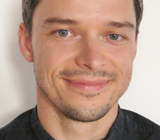 Back in June, I was putting the finishing touches to my application for the NHS Leadership Academy. A new and ambitious venture, it aims to bring leadership and management development to all corners of the NHS on an “industrial scale.” [1] According to its website, around £46 million will be invested into the academy by 2015. Some critics may feel that spending this money on personnel development and taking staff away from the workplace is pulling in the wrong direction, given the immense financial pressure that the NHS is under at the moment. But Karen Lynas, deputy managing director at the academy, doesn’t see it like that. She argues that creating better leaders is a no-brainer, and forms part of the answer to the pressures on the system. [2]
Back in June, I was putting the finishing touches to my application for the NHS Leadership Academy. A new and ambitious venture, it aims to bring leadership and management development to all corners of the NHS on an “industrial scale.” [1] According to its website, around £46 million will be invested into the academy by 2015. Some critics may feel that spending this money on personnel development and taking staff away from the workplace is pulling in the wrong direction, given the immense financial pressure that the NHS is under at the moment. But Karen Lynas, deputy managing director at the academy, doesn’t see it like that. She argues that creating better leaders is a no-brainer, and forms part of the answer to the pressures on the system. [2]
The academy recognises the ever-increasing complexity of the NHS, and the need to prepare people for its demanding roles. There are five main programmes that have been launched over the course of this year, tailored to meet the needs of staff at different levels. The idea is that the knowledge and skills you pick up along the way should not only serve you in your day-to-day role, but help you prepare for your next.
I put myself forward for one of the programmes as leadership development makes sense to me. I’ve had some support already, through an internal programme at my trust, and then a regional programme as a former NHS Midlands and East SHA Change Leader. The Nye Bevan programme at the Leadership Academy was the obvious next step, and I got offered a place in September.
As a doctor and manager I’ve found the skills that I’ve picked up have helped me wear both hats. Management, in its broadest sense, is an intrinsic part of what doctors now do, and something most of us benefit from getting better at. These days it’s almost impossible to work in isolation, so having an awareness of how to engage with the system around us helps us to improve quality of care and make services safer. And in essence, engaging with “systems” means engaging with people, as it is patients and staff that make up the institutions around us. Policies, guidelines, and research take us so far, but it is people that make things happen. Getting better at getting the best out of people is a key skill if you want the best deal for patients.
The programme takes place over the next 12 months. I hope to use this blog to chart my progress, and give a doctor’s view of what goes on over its course. With managers and senior clinicians sharing their experiences, I’m hoping to get a unique insight in to today’s NHS. The whole point of me taking part is that I’ll be changed in some way. As yet, I’m not entirely sure how, but I’m hoping that it’ll make a positive difference to my patients and me.
I declare that that I have read and understood the BMJ Group policy on declaration of interests and I have no relevant interests to declare.
Billy Boland is a consultant psychiatrist and lead doctor in safeguarding adults at Hertfordshire Partnership University NHS Foundation Trust
References:
1. www.leadershipacademy.nhs.uk
2. Lynas K. Now is the time to invest in NHS leaders. HSJ, 20 May 2013